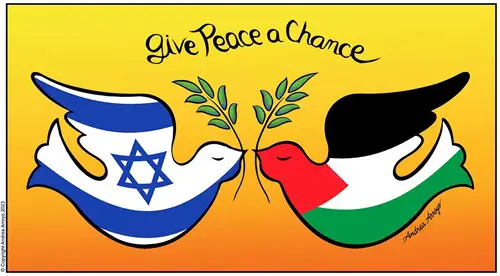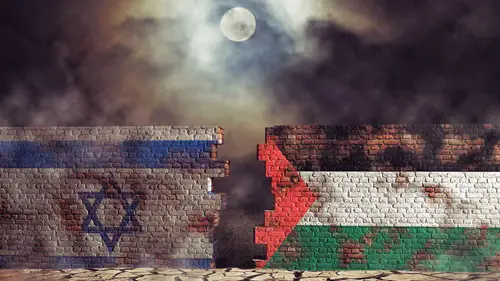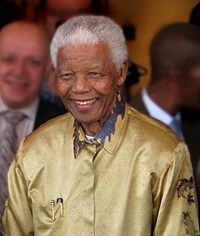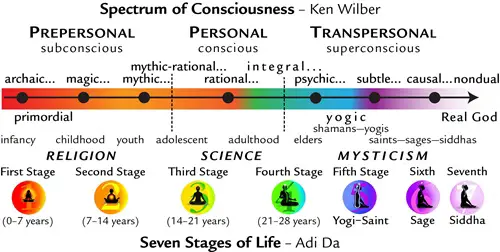Integral Reflections on the Israeli-Palestinian Conflict, Initial Thoughts, Brad Reynolds (original) (raw)
TRANSLATE THIS ARTICLE
Integral World: Exploring Theories of Everything
An independent forum for a critical discussion of the integral philosophy of Ken Wilber
SEE MORE ESSAYS WRITTEN BY BRAD REYNOLDS
Initial Thoughts
(December 2023)
Brad Reynolds

What is clear is that this is one of the most complex and contentious—if not the most complicated conflict in the world today.
First of all, if anyone thinks they know all about what's going on about the current Israeli-Palestinian conflict, then they are wrong. I sure don't. Neither do the Israelis or Palestinians, the Jews or the Arabs, let alone the rest of the world, it's that complex and contorted. And neither does Ken Wilber (or Raquel Torrent Guerrero), certainly not Joseph Dillard with his anti-Western, pro-Marxist (pro-Russia/China) critiques (posted on this website[1]); even Frank Visser has been wise enough to mostly present ChatGPT facts. Even Jared Kushner, appointed by former President Trump to solve the Mid-East crisis and come up with a peace plan, could not figure it out. Now that's bad! In fact, most people think it is a conflict that's been going on for hundreds, if not thousands of years, and they too are incorrect—it's more of a conflict of the last 100-150 years, particularly the past 75 years. What is clear is that this is one of the most complex and contentious—if not the most complicated conflict in the world today. It was even behind Al-Qaeda's attack on the United States on 9/11, 2001, which changed the entire global dynamic going into the new millennium.
We need a SOLUTION!—yet there is NO obvious one. Hence, you would think Integral “theory” or Integral philosophy and politics would provide some insight, but I have heard very little if nothing that is convincing. Steve McIntosh, an integral political thinker has basically been silent (as far as I know). Jeff Salzman offers insightful reflections on the Daily Evolver podcast but no real solutions (since he tends to shy away from transpersonal possibilities although he always offers useful integral ideas). Therefore, I will attempt to offer some suggestions yet will inevitably fail. Frank Visser's piece on “Bothsidesism,” where he pointed out a SPECTRUM of positions and reactions—which is how an Integral approach should proceed—was an intelligent and reasonable start, in my opinion. Over six months before the current war began, I started a deeper dive into the situation since I had some Israeli friends making statements about history I did not know. I discovered that it is far more complicated than I suspected, and I have been living through the news of this madness for over 50 years! We all have a lot to learn, so perhaps we should suspend our judgments for a moment and investigate deeper.
You would think Integral philosophy and politics would provide some insight, but I have heard very little if nothing that is convincing.
Everybody has their own perspective. And, generally, that perspective, from what I have observed, comes from a lack of information (or misinformation). Therefore, let's explore together—in an open dialogue—about what a genuine INTEGRAL APPROACH might be to the Israel-Palestine conflict and Gaza War. This essay is just a start; please contribute your own suggestions and insights.
Ken Wilber - Israel/Palestine, Raquel Torrent Guerrero, November 2023.
The recent Wilber-Guerrero interview (posted at the end of November 2023), as Visser quickly pointed out, was a lame attempt to review the situation. Ken obviously has not studied the topic much for his responses were, (1) historically inaccurate in many cases, and (2) simplified to the point of being nearly irrelevant. We can no longer turn to Wilber for direction on what Integral thinking is about and how to approach our current and future global conflicts. Wilber's declining health and cognitive slump, due to age and a debilitating disease, takes him out of the conversation. He has given us his brilliant contributions over the first few decades of his career (1977-2017), but it seems to be time for him to accept his retirement and cease to muddle the waters with statements like he made during that interview. I agree with Visser in this case. It was little help at all. Ms. Guerrero, bless her soul, was also off-base in her understanding of the complexity of the situation. Like many (if not most people), she just sees civilians and children being killed and that's all she can think about. But history does not work like that, unfortunately. Already more Palestinian citizens have been killed than Ukrainians (according to most reports). We MUST see the larger historical—and cultural evolutionary—forces at play here, which to his credit, Wilber tried to bring up but his incompetency failed to produce any convincing results. God bless his soul too, for it is heartbreaking to witness his decline. Ken, my friend, retire and go take care of yourself. Others must take over from here; thanks for all you have done. As he said: “Gimme a break!” (good idea).
But where are all the Integral thinkers? They aren't posting on this “Integral World” website often enough! Some reside at Integral Life, such as Corey DeVoss, Mark Fischler, and others, but even they too are perplexed by the horrors of what we are witnessing in the Middle East—as we all have been for decades—for our entire lifetime (and I'm in my late 60s). I sure know I'm not fully clear about all of the details. There are so many views and perspectives it becomes a tangled web of aperspectival madness incapable of making accurate value judgments, so people try to fight their way out be condemning others who don't think like them. A sure sign of the ego and the failure to integrate wisdom into our solutions.

As a result, I try to lean into what an Integral Approach might say. Here are some of my preliminary conclusions. Please help! What are yours? And I mean INTEGRAL, not the old outdated left-right, communist-capitalist dynamics—like Dillard tirelessly presents; although I do admire his deep moral concern; he's trying to do what he feels is right, I understand that, but he simply is not presenting an Integral view, beyond using some integral terms and concepts. Dillard began his recent “What is an Integral Approach to Gaza?” by suggesting we avoid polarization, yet then goes on to use highly contentious words such as “apartheid,” “genocide” and “ethnic cleansing,” as if this view is the only correct one. However, there are valid counterarguments to using such extreme terms, as Visser's essay indicates. In other words, Dillard polarizes the situation, thus not providing an adequate integral response, IMO.
It is essential to approach this complex and sensitive issue with an understanding of the historical background, political dynamics, and perspectives of all parties involved, including Israel's as well as the Palestinian's. Public opinion varies and strong emotions are evoked, plus no one professor or analyst is correct, so dialogue must continue to be an integral part surrounding the Israeli-Palestinian conflict, and now, the Israel-Gaza War. Different stakeholders interpret events through their unique lenses, and the nuances of the historical, political, and humanitarian dimensions of the conflict warrant careful consideration and respect for diverse perspectives—that, to me, is a more Integral approach.

European Colonialism as a Root Cause of Terrorism
It is nonproductive to simply condemn “the West” or colonialism (as Marxists tend to do), or merely to blame the “terrorists” (or radical revolutionaries and Jihadists). Yet, we must be honest too: terrorism in today's world began as a communist revolutionary tactic used to attack colonial powers who had larger armies and were suppressing indigenous populations. It is in large part a response to the oppression of Western powers over colonial (and racial) subjugation; thus, these crimes cannot be overlooked either, I agree. Yet, at the same time, we cannot turn back the clock of history; we must begin where we are now. While some movements or groups that have engaged in acts of terrorism claim to be fighting for national liberation, the vast majority of experts and scholars, as well as international law, reject terrorism as a legitimate means of achieving political goals. Acts of terrorism involve the deliberate targeting of civilians, and such tactics are widely condemned for their disregard for human life and fundamental human rights. However, there have been times when colonial powers have acquiesced to violent revolutionary movements, such as with Algerian War of Independence (1954-1962), the Kenyan Mau Mau Uprising (1952-1960), and the Irish Republican Army (IRA) against England.
Nonetheless, It is crucial to emphasize that while some liberation movements have achieved their goals with violence and murder, the use of terrorism is widely condemned and does not justify the deliberate targeting of innocent civilians. Acts of terrorism are contrary to international humanitarian law and human rights principles, whereas peaceful means of pursuing political change are generally regarded as more justifiable and effective. For example, Mahatma Gandhi's philosophy of nonviolent resistance, known as Satyagraha, was instrumental in India's struggle for independence from British colonial rule. The Civil Rights Movement in the United States (1950s-1960s), led by figures like Martin Luther King Jr., employed nonviolent tactics such as sit-ins, marches, and boycotts to challenge racial segregation and discrimination. There was also the Anti-Apartheid Movement in South Africa (1950s-1990s) where Nelson Mandela's release from prison and subsequent negotiations paved the way for a democratic, multiracial South Africa. The Velvet Revolution in Czechoslovakia (1989), led by figures like Václav Havel, advocated for democracy and human rights and contributed to the overthrow of the communist government in 1989. Such nonviolent movements have had longer-lasting effects and protect people's rights better (helping to alleviate guilt, vengeance, and suffering).
In essence, then, European colonialism is a root cause of the conflict between Israel-Jews and Palestine-Arabs (which is a large part of Dillard's complaint). Yet, the history of the Palestinian-Israeli conflict involves a complex narrative of dispossession, displacement, and competing national aspirations on both sides, as well as Jewish immigration into the area (where they legally bought much land) before the State of Israel was created. Historical events, such as the Nakba (1948), the Six-Day War (1967), and subsequent conflicts, have shaped the context in which different forms of resistance emerged. Nonviolent resistance, including protests and civil disobedience, has been employed at various times, such as during the First Intifada (1987-1993) and with specific demonstrations against the separation barrier. But my understanding is that Hamas generally discourages nonviolent protest although it does engage them as well, yet the unarmed protests at the Gaza-Israel border, for example, were also a desperate bid to provoke a crisis. Again, an unwieldy complex situation, yet the terrorist killing of civilians is NEVER justified from an Integral perspective, as well as violating international law.
No Peace, Only War
Peaceful-seeking leaders have usually run into resistance by the extreme political wings of their own people. Such as Israel Prime Minister Yitzhak Rabin, who was assassinated in 1995 by a right-wing extremist after negotiating and signing the Oslo Accords. It is often overlooked that Israel has made real efforts to establish peace—including a two-state solution—which have been violently resisted and disrupted by Palestinian leaders. In the interest of peace, Israel took a risk that Yasser Arafat, who for decades had led a terror campaign against Israeli civilians, would cooperate yet in the end no real peace was achieved. Israel signed a series of peace agreements aimed at creating a Palestinian state beside Israel, only to discover that Arafat ultimately remained committed to a Palestinian state replacing Israel. Israel agreed to withdraw from parts of the West Bank and Gaza Strip (which they did in 2005) and arm a Palestinian police force—and did so—even though Arafat did not fulfill his promises to recognize Israel's right to exist, renounce terrorism, negotiate disputes, and confiscate illegal weapons. Arabs and Palestinians, therefore, unfortunately, are as much to blame for their plight as Israel, a perspective often overlooked by Palestinian sympathizers.
In 2000, Prime Minister Ehud Barak offered unprecedented concessions at summits with Arafat and President Clinton that most Israelis thought were dangerous (especially Netanyahu who had been temporarily voted out of power). Barak agreed to the creation of a contiguous Palestinian state in most of the West Bank with east Jerusalem as its capital, and to dismantle isolated settlements. According to U.S. peace negotiator Dennis Ross, Arafat rejected “every single one of the ideas” for compromise. This led to the resurgence of Prime Minister Benjamin Netanyahu, who currently has been serving as the prime minister of Israel since 2022, having previously held the office from 1996 to 1999 and again from 2009 to 2021. Netanyahu has no aspirations whatsoever for a two-state solution, which has frustrated Hamas and the Palestinian people. Now “Bibi” has made deals with far-right extremists to remain in power, so they are in charge of this heavy-handed, deadly response to the terrorist attacks of October 7. At least this is my basic understanding, which admittedly has probably overlooked other important dynamics, so excuse my brief review.
Consequently, my overall conclusion is that the extremists on both sides, the Likud party of Netanyahu (and his far-right minister of “national security” Ben-Gvir—more like “minister of chaos,” as he's been called)—and Ismail Haniyeh and Khaled Meshaal of Hamas (if I got that right), are the primary reasons for the current problem (let alone the previous failures of Yasser Arafat). As it currently stands, neither side is willing to negotiate; neither side wants peace, and it's been that way at least since the collapse of the Oslo peace process of 1993, and then after 2000 (largely due to terrorist attacks on civilians in Israel and assassinations with the Second Intifada), which led to the resurgence of Netanyahu. After a signed paper, overlooked by President Clinton (to world attention), peace never took hold on land or in people's lives.
Now, after the election of Hamas in 2006 to rule in the Gaza Strip they have suspended all future elections, so the Palestinian people are trapped by their own government as well as by Israel's ruthless separation policies. Hamas does in fact use civilians as shields against Israel's military (itself a violation of international law). Yes, they use hospitals and schools for shelters and headquarters, exposing their population to danger, and wasting resources for weapons and military operations. Such corruption and abuse are obscene (as well as illegal). The far-right extreme measures of Israel, and the policies of Netanyahu, are also shocking to those of us who thought Israel was mostly democratic and egalitarian, but far from it (as Dillard has pointed out). Yes, they have a right to defend themselves but they seem to be doing much more than that. Yet, I admit, it is difficult to know for sure. I want to trust them but the evidence is piling up; plus, I have NEVER trusted Netanyahu. For over 20 years he has been planting a time-bomb that has finally gone off.
Sadly, I am seeing reports and images coming out of the current war that make it looks like the Israeli military—the Israel Defense Forces (IDF)—are themselves acting like Nazis! Have they not learned anything from the Holocaust, the rounding of people up and stripping them of their clothes to humiliate them? How dare they treat the Palestinians with such disrespect! Sure, they are not sending them into ovens, but they are certainly committing war crimes in the process and this is not acceptable. You see, it's impossible to take either side and be right or for justice.
Sometimes I wonder: what would have happened if Israel had taken the murderous blow of October 7 without a violent response—a major principle and tactic of Satyagraha—and instead appealed to the Arab nations, the US and EU, and the United Nations to WORK FOR PEACE and a final settlement of the Israel-Palestine conflict while people of the world had sympathy for them? This could have possibly promoted a real and viable two-state solution—or even a one-state solution of equal rights for all citizens—yet the leaders, the extreme views of both sides, were having none of that! Israel has learned none of the lessons the United States should have learned after 9/11 and Vietnam. But the military-industrial complex sees profits, not just defense, so the mad cycle of war, hate, crimes, and murder continues. It is pathetic and MUST STOP! But how? Ay, there is the rub.

Real Peace Beyond War
To begin with, let me clearly state that I am against the killing of civilians and children (on either side) and my heart is wounded deeply by this tragedy in Gaza. Yet, I am not sure a ceasefire at this time would work unless Hamas and the Palestine Authority is willing to negotiate with Israel for long-term peace. I do understand why Israel wants to “eliminate” Hamas—who wouldn't?—but is war the best way to do that? The Arabs of the region—and I think Iran would be essential—need to participate in any real, international negotiations, yet they must be done in good faith, not to simply promote further religious fundamentalism.
Where are the peace-promoting leaders? They do not exist or are killed if they try. However, due to the self-righteous stance of the fundamentalist Islamic revolutionaries and their regimes, this seems impossible. I do place the blame on them more than the Israelis since they generally maintain that Israel has no right to exist and is dedicated to its eradication, so Israel responds with a mighty military force usually exacerbating the problem. Yet, everyone, all people, MUST live in present-time reality and not try to rearrange the past. Just as Visser correctly points out: “We can't turn back the clock of history, we can only take a pragmatic approach that will include the concessions both from Israel and the Palestinians in accepting the rightful existence of the other.” Precisely correct: THAT is genuine Integral thinking yet it seems to be absent from our political discussions. So, instead, we have perpetual war and conflict. Yet we also have a choice: the past and more war or the integral evolution of consciousness!
Consequently, for over 20 years I have watched Netanyahu destroy any chance of a genuine two-state solution, as did Trump when he took office by changing the United States' policy about such a proposition (that even the Bush administration supported). Therefore, I do feel Israel is in the worst hands possible, as do many of its citizens (as the recent 2023 street demonstrations of hundreds of thousands of Israelis prove). This just compounds the tragedy. I abhor the death of civilians. I also grieve for all of the Israelis who have been murdered and killed by suicide bombers over the past several decades—something Westerners outside of Israel too often forget. We are aghast as bombs kill Gazan citizens, yet if the thousands of rockets launched by Hamas and Hezbollah had reached their targets—stopped only by Israel's “Iron Dome” or defensive missile system—then we would also be moaning the death of tens of thousands of Israeli citizens as well, another point overlooked by the Left and Palestinian sympathizers. See? It's an intractable and densely complicated situation. So, what does an Integral perspective have to say?
What Would Nelson Mandela Do?

Nelson Mandela
I found that a discussion with ChatGPT a few months ago was enlightening when I asked how Nelson Mandela's political philosophy and his approach to conflict resolution can offer valuable insights that could potentially help in the Israel-Palestinian conflict. Not surprisingly, it provided several integral responses that I feel are critical. Notice they all demand a transcendence of the methods of the past, such as terrorism, segregation, and war. First, ChatGPT pointed out that Mandela strongly believed in the power of reconciliation and forgiveness as a means to heal divisions and build a peaceful future. In the Israel-Palestinian conflict, promoting a culture of forgiveness and understanding could help foster empathy between the two sides, which is crucial for any lasting resolution. I cannot emphasize enough how important the principles of forgiveness and compassion are necessary to move toward a brighter future for both Israelis and Palestinians. Revenge will never generate future peace; perhaps reparations would be a potential solution (as Germany did after WWII for the Jews).
In addition, Mandela also advocated for a society that embraces diversity and provides equal rights to all citizens. In the context of Israel and Palestine, this principle could translate into promoting a solution that respects the rights, dignity, and security of both Israelis and Palestinians, regardless of their religious or ethnic background. Plus, Mandela believed in addressing the root causes of conflicts, such as inequality, injustice, and discrimination. Similarly, in the Israel-Palestinian conflict, addressing the underlying issues, such as land disputes, access to resources, and the right to self-determination, is essential for any sustainable resolution.
But how to make this happen? Wilber was correct in stating that we need integral—and rational worldcentric—leaders or at least leaders wise enough to be willing to do anything to free their people and establish long-lasting peace. Therefore, Mandela recognized the importance of international mediation and support in resolving conflicts. In the Israel-Palestinian context, international actors could play a crucial role in facilitating negotiations, providing impartial mediation, and assisting with the implementation of any agreed-upon solutions. Mandela's approach to conflict resolution involved engaging in meaningful dialogue and negotiation, therefore, applying this principle to the Israel-Palestinian conflict would require creating an environment conducive to constructive dialogue, encouraging both parties to come together to address their concerns, aspirations, and grievances. Good luck, right?
Yet, when he was younger and a revolutionary, Mandela (as a member of the paramilitary wing of the ANC) advocated for violence and terrorism, but in the end—and after his own personal transformation of consciousness (and conscience)—his struggle against apartheid was rooted in nonviolent resistance. Similarly, promoting nonviolent means of protest and encouraging peaceful demonstrations can help reduce tensions and create an atmosphere where dialogue can flourish, instead of reactive military responses. Hamas and Netanyahu's Lukid party, consequently, seem to be the wrong players to achieve such peace. Yet, this seems to be what has to happen. A truly Integral approach needs to use peace to gain peace, again: Cooperation + Tolerance = Peace. It may sound unrealistic, but in reality, it is the only realistic solution!

Transpersonal Development to Solve Prepersonal and Personal Conflicts
Primarily, as I often do in my essays on this site, I want to emphasize that INTEGRAL involves the vision (and practice) that awakens and accesses the TRANSPERSONAL stages (and states) of consciousness development. In this case, it also transcends pre-personal TRIBALISM or self-centered identification with an ethnic, cultural, national, or religious point of view. I know that is difficult for most people to understand but it is the core of BEING integral—that is, practicing integral, not merely talking it. The evolution of consciousness and further human development is crucial and foundational to BEING Integral. And this means MEDITATION (which involves self-transcendence) and CONTEMPLATION (which involves Divine Communion and worship), all _trans_-personal practices and endeavors.
In other words, it is by accessing the higher (and highest) potentials of the human race that we move beyond the limitations of the past and our inherited history. This is what the evolution of consciousness does for us all, both individually AND collectively. This means that the most effective Integral approach is one that takes into account the Enlightened or God-Realized and nondual (or non-dualistic) view because this perspective transcends-and-includes more than any other. Plus, such an expansive and genuinely spiritual view concludes that love and compassion are the true purpose of human life (and morality) and are thus the pinnacle—as well as the ground (including all lower stage-levels and lines)—of true human development.
However, nowadays even Wilber has shied away from such a strong mystical-transpersonal approach (in opposition to his earlier works), since he likes to emphasize that Integral mostly takes into account ALL of the previous developmental perspectives, from the Archaic to Magical to Mythical to Rational to Pluralistic, etc. (or from magenta to red to amber to orange to green, etc.). While this is indeed an important aspect of Integral, it is not sufficient to overcome the problems of the ego (individually or collectively)—or the sense of feeling separate and as if one must fight others (and other tribes that disagree). This is because even the Integral-self is just another “higher” (or more developed) form of ego. In other words, an “integral ego” is still an ego-self nonetheless. And, I maintain, it is the limited view of individual egos (Upper Left/Right)—which manifests as collective “tribes” (Lower Right) or “tribal thinking” (Lower Left)—that is the root problem behind conflict, murder, and war. It even goes deeper than historical and political causes (which are still ego-based) . Yet, this is also why the self and society can be TRANSFORMED into a better future! But it takes everybody-all-at-once acting together for a greater, self-transcending goal, such as world peace and global unity.
Even the Integral-self is just another "higher" (or more developed) form of ego. In other words, an "integral ego" is still an ego-self nonetheless.
Therefore, to BE Integral we must look directly at the religious root illusions involved in this current conflict between the Jews and Arabs and their competing monotheisms (different views of “One God”) delivered by different Prophets from different tribes. Indeed, as Jan Krikke wisely pointed out in a comment to Visser's essay, both Arabs (descended from Ishmael) and Jews (descended from Isaac) come from the same patriarchal “father” Abraham—at least according to their religious story and scriptures (or myth). So she concludes: “Let us weaken the patriarchy and affirm the sisterhood of our foremothers by reconciling their ancient squabble. Let us bring the two halves of the family together by sharing the land, bonding spiritually, and working together to achieve a prosperity that will make both our peoples strong.” Indeed, that sounds like a viable Integral approach… or at least a great start.
By critiquing religious cultism, then, we can examine, not just intellectually but emotionally and spiritually, the tribalisms (and boundaries) that accompany such traditional perspectives. Hamas, the Palestinian political and militant (and terrorist) organization who officially rules Gaza, is dedicated to eliminating the existence of Israel and wiping it off the map, literally, “from the river to sea” (as stated in their charter) And unfortunately, this is a similar position of the Israeli far-right since they want a state of Israel with no Palestinians “from the river to the sea.” How absurd they both use the same slogan to cancel each other out. WTF! Both are totally unrealistic! Yet people are dying by the thousands over illusions of the ego and tribal identities! This is an intolerable stance.
Obviously, an Integral view says neither of those positions is correct so they must be moved beyond or outgrown (and outvoted on by the populous). Hamas's charter specifically rejects all peace initiatives, as does, ironically (and tragically) “The Basic Laws of Israel,” the fourteen quasi-constitutional laws of the State of Israel (as I understand it). And worse (from an Integral democratic perspective), Hamas opposes secularism or any form of government or law that is not based on Islamic principles (unlike Israel). This plain and obvious fact is often overlooked by all those people who are sympathetic to the plight of the Palestinian people (for example, I have never read Dillard make an issue out of this fact yet he is quick to condemn Israel's distorted views).
Wilber calls such fundamentalism as being “magical thinking (or red),” but that too is not fully accurate since it is an EXTREME form of traditional religion. It is a psychotic or an “allergenic” and unhealthy form of religion and has no justification for existing in a global world order promoting peace among all people. Rachel, in her interview with Ken, pointed out (as do many) that “Hamas” is an ideology—so it cannot be defeated or destroyed—yet it can in fact be TRANSFORMED. These revolutionary and violent forms of ideology need to “Grow Up” (or become mature)—which is why Wilber ineffectively said Hamas “needs therapy” (which is true to a degree but also kind of silly).

Yet mostly, everyone, on both sides, needs to “Wake Up” or transcend their limited self-centered perspective, as do the extreme positions of both the Israelis and Palestinians who want war. Of course, this may seem impossible but it isn't. As one example, how useful would psychedelics (or entheogens used properly) be in the Middle East? Talk about radical therapy—one that I have always advocated for: Arabs and Jews all need a radical revolution in consciousness. I think many agree. This seems to me to be some of the ways how an Integral or full-spectrum approach (both individually and collectively) could serve this dreadful situation. That is, we need to encourage the further development and evolution of socio-cultural structures in both Lower Quadrants (i.e., cultural and social forms) to enact the further transformation of fundamentalist political and religious ideologies and worldviews. As Dillard correctly points out, we need to tetra-mesh the cultural and social moral values better with our individual moral values activated by our separate self-identity (in the Upper Left quad). But how to do that? Yet, obviously, the answer isn't merely drug use or meditation. Ay, there's that persistent rub again.
Esoteric Mysticism Heals Exoteric Religious Cultism
Which brings us to Iran and its Islamic radicalism, which finances and arms Hamas (and Hezbollah and other terrorist Islamic groups) throughout the Middle East (including in Iraq and Syria)—with the help of the Russians and Putin (by the way). It is their traditional (and mythic or pre-modern) belief that governments should be run by religious principles that is a non-starter for most people living in the modern world who have experienced the happiness and peace that comes from religious freedom and tolerance. Let alone free speech, a free press, and the right to assemble and protest their government. Such a radical position, of course, contradicts everything “the West” spent over a thousand years fighting against and the all-important separation of Church and State. Yet, this is no longer a “Western” view but one that people from all around the world agree is a better and more just way to live: Everyone should have the right to worship (or not) as they see fit based on their conscience and inner feelings, not as a government or other people want you to live. Such an egalitarian view is the emergence of a genuine global reality and the foundation for authentic world peace.
It is time to stop separating us into East versus West, South versus North (such as, for example, Chomsky and Mearsheimer [and Dillard] promote), and all other kinds of separative and polarized stances.[2] It is time to think and act globally as one human race… or we are doomed, especially with the current climate crisis (and global warming) which will take a united effort to stop. Such an Integral perspective encourages (even demands) the transformation of lower stage (and tribal-nationalistic) thinking into higher-order morality and action.
Achieving these stages of higher (more advanced) human potential is the result of understanding the developmental progress available in genuine human psychological growth. Such human capacity is universal, it is innate in our human body-mind-soul structure, and is even embedded in all of the esoteric wings of all world religions. We are ONE humankind and it is time we act like it; stop defending our own (or our tribe's) claims to certain territories and celebrate our diversity, not die over it. In actuality, we are part of—and have inherited—one “Great Tradition” of humankind that everyone should have free access to (but many still don't). This means humanity as a whole can embrace the wealth of wisdom bequeathed to us by our wisest ancestors. This is precisely what the Mystics teach too: we are ONE humankind and we are supposed to be loving and compassionate to others, not violent.[3] Treat others as we want ourselves to be treated. The Golden Rule: Do it now or suffer war endlessly.

Hence, I believe, one of the most important Integral solutions is that we should encourage the Israelis and Palestinians, the Jews and Muslims (and Christians), to look to and deeply study their own greatest transpersonal Prophets, Saints, and Sages—and sacred scriptures—in order to learn how to transcend war and conflict altogether (which takes intense spiritual disciplines and self-transcendence). Muslims should turn to the Sufis, for example, Jews to the Kabbalah, Christians to their true Saints (and Christ himself). Listen to their own esoteric teachings, not merely exoteric belief systems and outdated religious traditions. In other words, it is time to stop listening to all of these lesser-developed religionists, like the mullahs, caliphates, the orthodoxists, and the priests, for example, and relying on their misguided (and often violent) interpretation of what their traditional religions are really about.
Why Wilber did not bring any of this up in his interview is beyond me (instead he confused the One God of monotheism with the lesser gods of polytheism, like when he compared Yahweh and Allah to Zeus and Aphrodite; as I say, Wilber offered hardly any reasonable Integral discourse in his recent interview). Integral must have sympathy with the religious impulse, yet it must also untangle it from mythic-traditional belief systems that are less than genuinely transpersonal by pointing to the esoteric offerings of our most cherished Mystics who promote cooperation, tolerance, and peace—that is, by clarifying the pre/trans fallacy, for example. Nonetheless, even mythic intuitions of the Divine are valuable and should be respected, not just ridiculed; this is BEING Integral too.
Another important point that is often not stated about this Mid-East conflict, then, is that it is grounded in the Western Abrahamic religious traditions, which all of them, as a general rule, fall far short of Enlightenment or God-Realization—or personal identification with the Divine or Ground of Being—hence they are aborting our true human potential. For them, God or Allah is seen and felt to be separate, and so therefore must be believed rather than realized in nondual union. Instead, these practitioners and Jihadists become addicted to the old, traditional cultic versions of religion and belief structures that evoke emotions, including vengeance and hatred, calling nonbelievers “infidels,” and so on. No wonder the scientific and rational mind despises religion: they can't maintain peace and tolerance for those who are not like themselves! They have a good point.
Yet, these mythic and extreme views are NOT what the Mystics teach, so an Integral approach to this conflict—to all conflicts—would be to emphasize the mystical and inner esoteric aspect of our inherited traditional religions instead of relying only on the outer-directed exoteric aspects based on belief and faith, not actual mysticism or God-Realization. To his credit, Wilber tried to bring this forward but ineffectively, as Visser noted. In any case, we need to encourage transpersonal spiritual visionaries from all cultures—including Integral politicians—to come forward and work with people to evolve their religio-spiritual development. Poverty needs to eradicated and education (and electricity), the basic necessities, needs to be made available to all living beings. We need a strong economic base (in the Lower Quadrants) to promote higher educational development (in the Upper Quadrants). This is BEING Integral.
People need to stop relying on any single tradition as the only means to guide them since that approach is not working well. Instead, people need to embrace all traditions, all holy books, as being part of their global inheritance. Then go to school with this wealth of wisdom and be transformed in their hearts and minds. Otherwise, they are limited to a certain cultural-ethnic identity that leads to war and conflict and heartbreaking suffering. Rational democracy, on the other hand, tends to promote peace and tolerance (when functioning properly), among all people regardless of race, ethnicity, or religious preference. Although capitalistic forces often oppose such freedom when their profits are threatened, thus they need to be properly regulated. Seen from an integral perspective, extreme fundamentalism is a misguided corruption of religion often used for political (and violent) purposes (including here in the United States). Therefore, it is up to us, we the people, to resist such corrupted paths of faith and belief and turn to a deeper wisdom and the true teachings of the Awakened Adepts and Sages of humankind. As integralists, we need to more effectively articulate and promote these more advanced possibilities.

Cosmopolitan Integral
Next, I think the Integral approach needs to emphasize the worldcentric approach of rationalism itself (a higher-order development than mythic religion), which ultimately results in a democratic and religious-tolerant approach to government and social relations. This is a true cosmopolitan approach to world peace. Freedom of religion is a fundamental human right for all people (and all future generations). Indeed, there have been many instances over the past centuries when Jews and Muslims and Christians were able to co-exist in peace (along with Buddhists, Hindus, and others, such as indigenous religions). In fact, the cosmopolitan cities of the past were often the most advanced cities in human civilization, such as in ancient Alexandria (pre-Muslim), or with the House of Wisdom in Baghdad (during the Islamic Golden Age between the 8th and 13th centuries), or in the Arabic learning centers of Toledo and Cordoba, for example (to name a few off the top of my head). In fact, it was cooperation between Arabic, Jewish, and Christian scholars in sharing lost ancient Greek philosophical texts, such as from Plato, Aristotle, and Plotinus (and others), that led to the re-birth or Renaissance of the Western world and the scientific revolution, but that's another story. The point is: WE can all live together since “Cooperation + Tolerance = Peace” (as Adi Da has pointed out with this simple yet profound formula).
In today's world, people as a whole have found peace thrives most readily where democracies are strong, where free enterprise is justly regulated, where information, education, and learning are free with access to all of the world's texts, secular and sacred, are available for anyone at any time. The restrictions on advanced education and literacy in the Arab world as a whole is a problem, just ask their women. But it seems no one (especially on the Left [aka Green]) wants to say that out loud for fear of violating cultural norms. Well, I believe Integral voices need to speak such truths without fear. After all, we only say this because we want everyone to have the potential to reach their highest developmental capacities.
Indeed, have you not noticed how the United Nations is speaking out against the Israel-Gaza War and is consistently voting for a cease-fire? They also promote the two-state solution, where, in fact, Palestine is recognized with non-member observer State status in the United Nations (since 2012). The UN is always behind the push for and distribution of humanitarian aid and other civilian support systems. The UN has also condemned the invasion of Ukraine by Russia since that clearly violates international law. The UN, which is often heavily criticized by both the Left and the Right, is one of the only international institutions that is _worldcentric_—and global-centric—in origin. After all, it was created in response to the most deadly and destructive war in human history—when over 6 million Jews were killed—to prevent all future wars. We should utilize the United Nations, and other international peace organizations, more effectively. The groundwork has already been laid. And if our governments are subverting this process and possibility, then it is up to us, The People, to vote them out and put in competent and honest leaders and representatives.
In Summary, for Now
I could go on, such as reviewing some of the historical causes of this conflict. But I have said enough for now. These are preliminary reflections, from my seat of comfort living on the West Coast in the United States of America—but I feel for ALL people, all around the world, in Africa and everywhere, who are being oppressed, so the least I can do is speak out and write… and try to BE Integral, to see spiritual as well as political solutions to our horrendous self-inflicted conflicts. I have a most beautiful dream beyond war. We must proactively engage the entire Spectrum of Consciousness, in my opinion, to be fully Integral from prepersonal to personal to transpersonal dimensions (in all four quadrants). This is how we embrace and love one another… and dialogue in peace. Won't you join in and add your voice to the conversation as well as pro-peace activism? We MUST do this together, everybody-all-at-once, if we are to have any real possibility to give peace a chance.

NOTES
[1] Nonetheless, I must state that I do feel Dillard brings up many important points, so I do learn much from his contrarian views. If he had not errored so greatly on Putin's invasion of Ukraine, I would trust his opinion more; but he has made himself quite clear about that and I disagree strongly.
[2] Although, granted, these university intellectuals only want justice, yet from what I see they simply are not integral enough (since they're usually grounded in, or very sympathetic towards, Marxist ideologies).
[3] See, for example, the last chapter "Democrats, Republicans, and Mystics" in Ken Wilber's Up From Eden (1981, 2007).